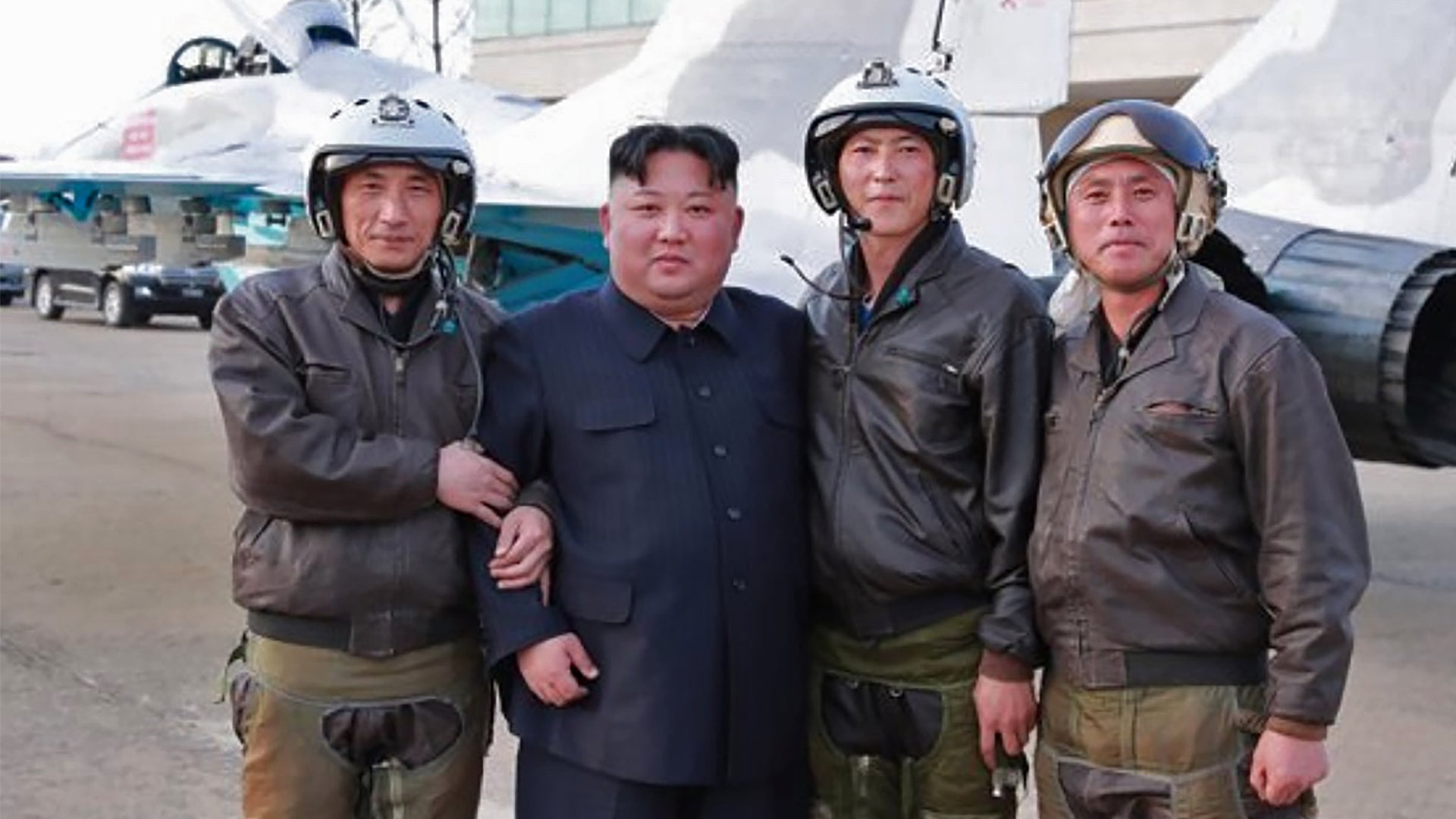Within the last two days, Kim Jong Un has been present at two publicized military engagements, something we haven’t seen since the darkest days of U.S-North Korean tensions that led up to a spate of detente that lasted just over a year. This warming of relations culminated in the collapsed denuclearization talks between the U.S. and North Korea in Hanoi late last February. Meanwhile, Kim is looking toward Moscow for closer relations and what may become a lifeline from the hardline international sanctions that are stifling North Korea’s economic growth.
Kim visited Sunchon Air Base on Tuesday, February 16th, 2019, to inspect operations there. The base is tasked with protecting Pyongyang from aerial attack and houses the country’s most advanced fighter aircraft, aging MiG-29s Fulcrums, as well as Su-25 Frogfoot close air support aircraft. Kim had visited the base fairly frequently in years past.
State media reported that the North Korean dictator gave his usual ‘field guidance’ and sent the aircraft scrambling to perform takeoff and landing drills (a worthless mini airshow). It also quoted him as stating the following:
“The air of peace that has arrived on the Korean Peninsula is not stable, nor have the aggressions of the hostile forces disappeared… Only a strong military can guarantee peace.”
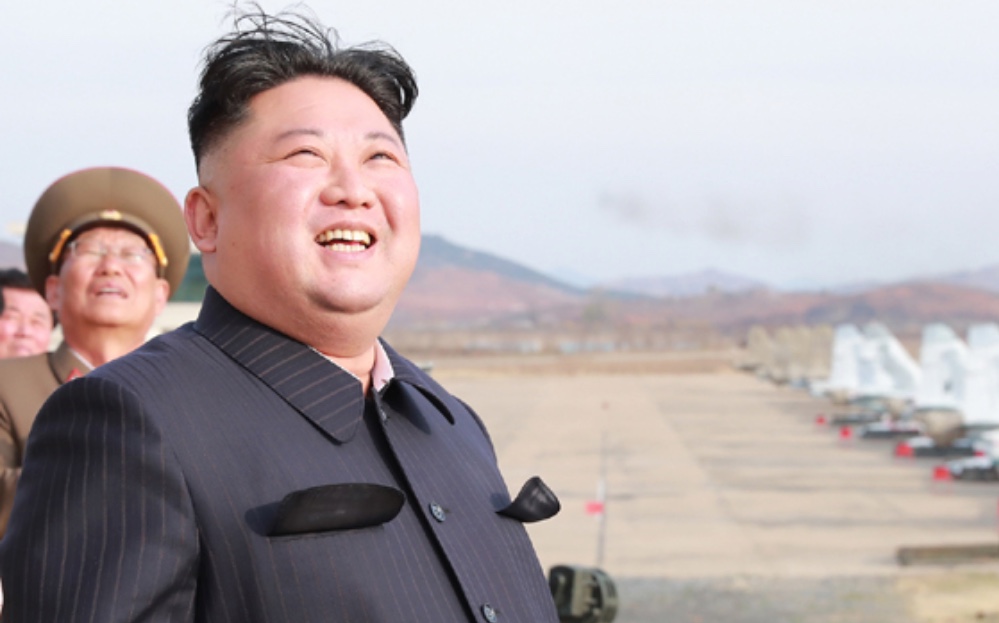
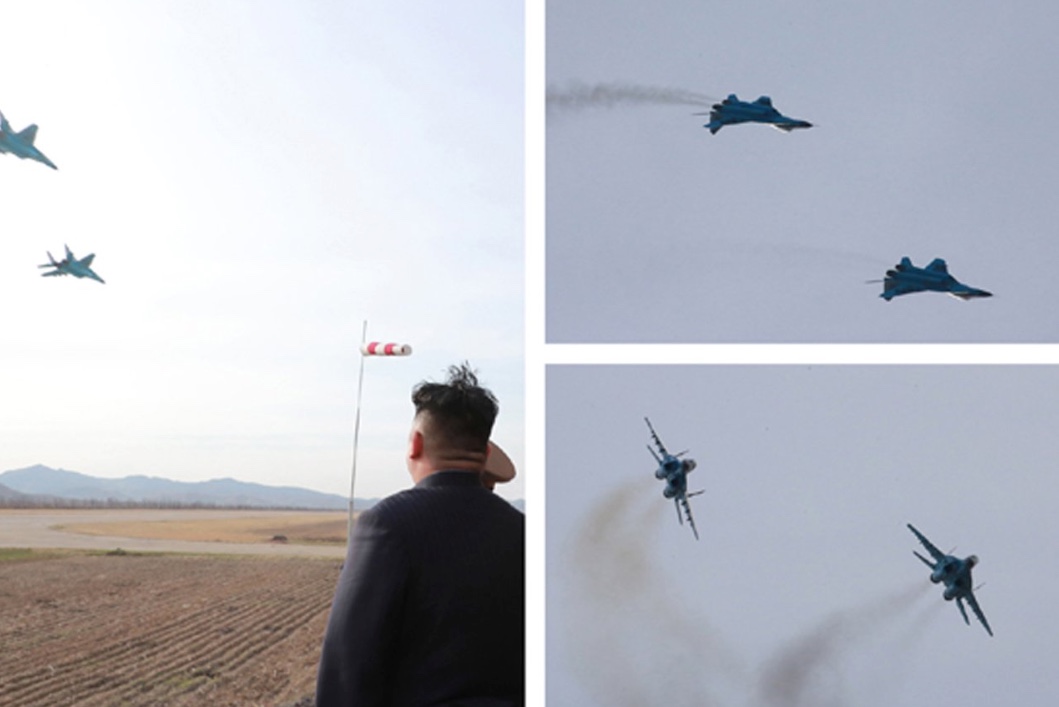
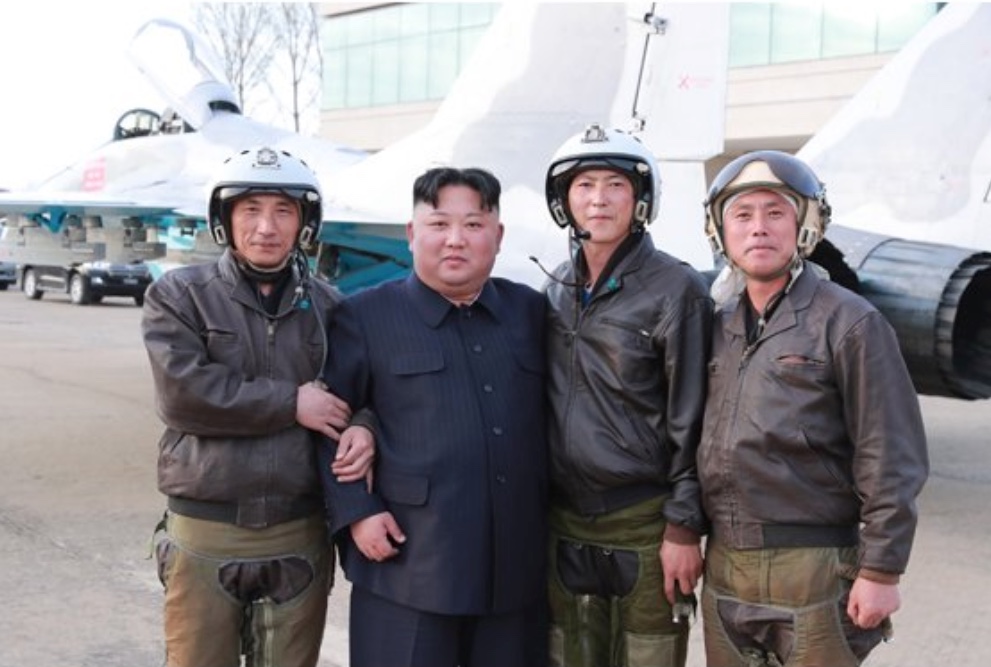
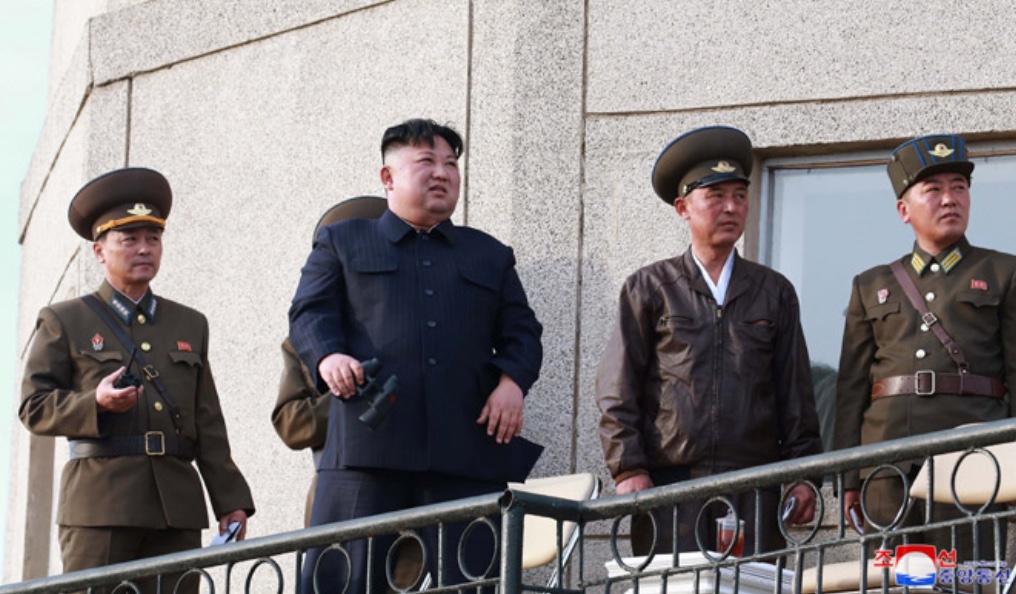
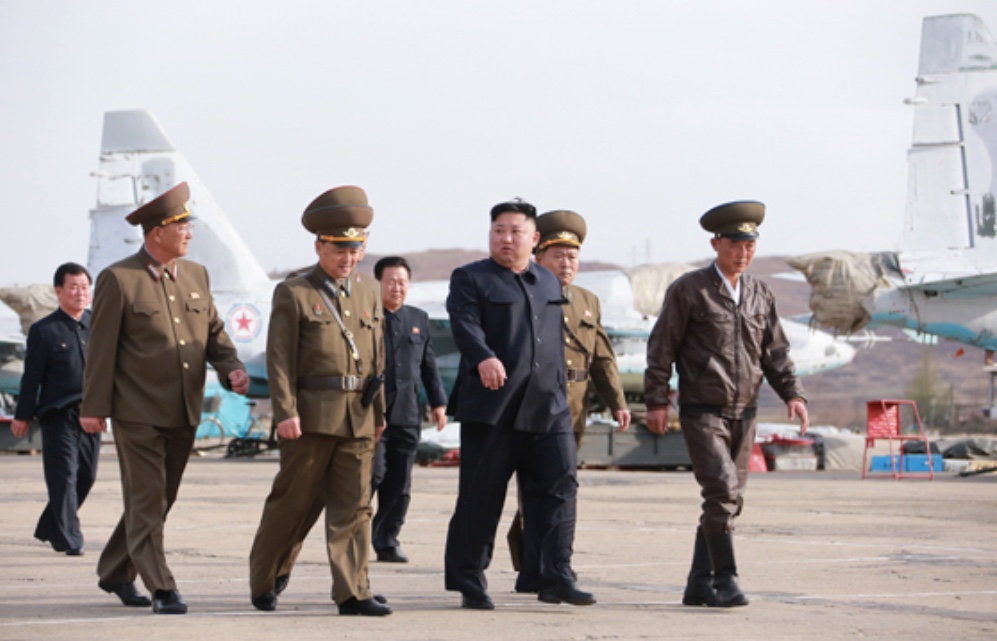
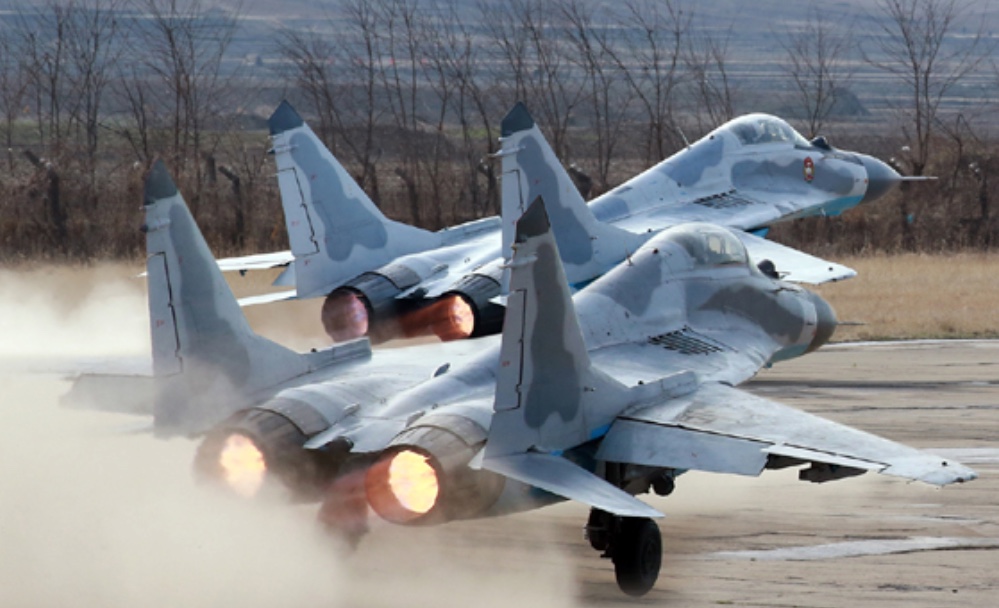
Then, on Wednesday, April 17th, 2019, North Korean state media reported that Kim Jong Un oversaw the test of a “new tactical guided weapon.” No pictures of that test have been provided and it is unclear exactly what type of system was tested, although it could be as simple as an anti-tank or surface-to-air missile. But that’s not really the point. The messaging is clear—North Korea wants to make it known that their old militaristic modus operandi can quickly return and that this is just a taste of old status quo that deeply rattled the U.S., South Korea, and Japan from 2016 to 2017.
A near-identical statement about a tactical weapon test occurred last November, during a time when diplomatic efforts with the U.S. seemed to be stalling. At the time, that was the first publicized military engagement Kim attended in nearly a year. Now, as prospects of a U.S.-North Korea deal and the lifting of some sanctions on Pyongyang have all but dematerialized, we are getting back-to-back military engagements from Kim, and those engagements seem uniquely pointed—visiting the top air combat unit in the country and ‘testing’ a new missile of some sort. The latter of which is clearly meant to jog the memories of the U.S. and its allies of the constant missile tests that put the entire region on edge.
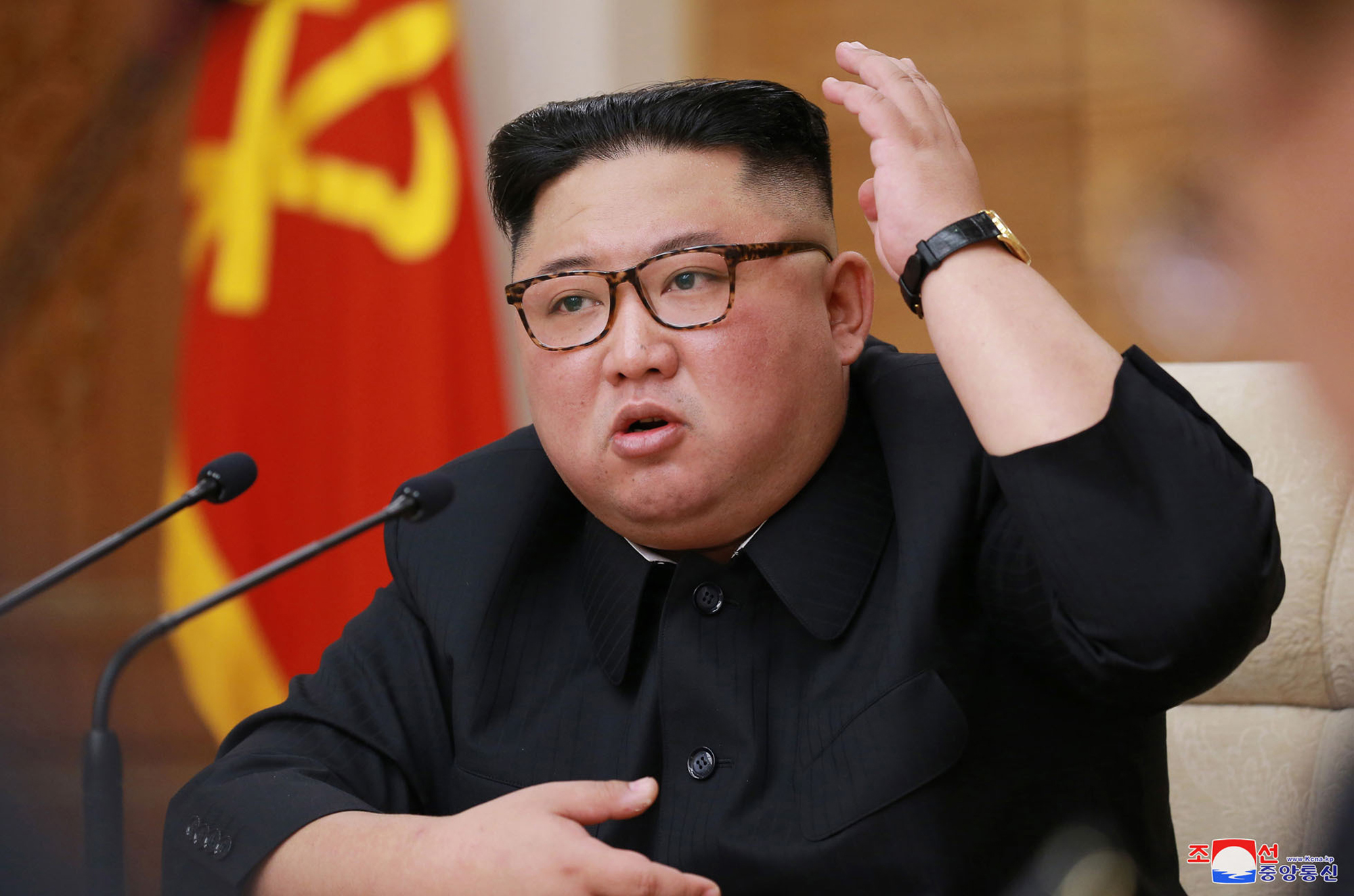
The optics of Kim Jong Un’s activities are one thing, but a much larger geopolitical development for North Korea is likely imminent, one many of us saw coming from miles away. By most accounts, Kim is set to make his first visit to Russia very soon, where he will meet with President Vladimir Putin. The location for the meeting is likely nearby Vladivostok, which is already the central hub of North Korean-Russian trade.
With Russia being a key player in the sanctions that are crippling North Korea’s economy, closer ties with Moscow can only help Kim’s situation. But there is the possibility that Moscow could do more than just be a more understanding international power broker. For Putin, the vacuum created by the collapse in U.S.-North Korean talks could offer a unique opportunity. If Moscow were to drastically increase its involvement with Pyongyang on a trade and national security level, it could strengthen Kim and his regime, while also broadening Russia’s influence in a very important region.
Russia could use corporate proxies and the black market to subvert the same sanctions regime on North Korea it has signed off on. It’s not as if Russia has been enforcing those sanctions to a high degree already. In fact, quite the opposite seems true. Russia is also already laying the groundwork for increased trade with North Korea via exploiting loopholes in the sanctions regime that would make such economic participation compliant with those accords. A cross-border bridge is also being discussed and North Korea is asking Moscow not to send home its laborers in accordance with the sanctions. The exportation of labor is a major currency source for the Kim Regime. North Korea also wants Russian airliners to revitalize its rickety state-run airline fleet.
A year ago, Foreign Minister Lavrov visited Pyongyang for the highest-level Russian-North Korean diplomatic exchange of Kim’s rule:

Some worry that an invigorated Russian relationship with North Korea could eventually lead to security guarantees and even a rearming of North Korea’s military. Russia has certainly shown its willingness to back nefarious allies with direct military support when favorable regimes are threatened and these examples haven’t even been for countries located near Russian borders. Such an arrangement would drastically increase the complexity of the situation on the Korean Peninsula.
There is also a high possibility that Russia will attempt position itself as a peacemaker between North Korea and the U.S. in an effort to raise its profile as an international power broker and to fortify its narrative that it is the level-headed player on the international stage that can rein-in America’s aggressive foreign policy. Such a move could also set a pretext for a weak disarmament deal proposition that would give Russia a reason to push for an end to sanctions on North Korea whether the U.S. goes along with it or not.
As for the possibility of a third summit between Kim and Trump, both leaders have floated the possibility, but it seems Kim is positioning himself very much in the driver’s seat, stating:
“If the U.S. adopts a correct posture and comes forward for the third DPRK-U.S. summit with a certain methodology that can be shared with us, we can think of holding one more talks… Anyway, we will wait for a bold decision from the U.S. with patience till the end of this year, but I think it will definitely be difficult to get such a good opportunity as the previous summit.
What is clear is that if the U.S. persists in its present political calculation method, the prospect of settling the issues will be gloomy and very dangerous… Self-reliant national defense capabilities constitute a powerful treasured sword for defending the sovereignty of the country… We have to always keep in mind that peace can be ensured only by powerful military capabilities, and firmly maintain the principle of self-defense and keep increasing the defense capabilities of the country.”
The Trump Administration says it needs to see signs that North Korea is serious about denuclearization before another summit takes place. At the same time, Trump continues to praise the North Korean dictator and states his relationship with him is excellent. He also says he would like a big deal that would lead to denuclearization and would meet again if that was possible.
In the meantime, North Korea is armed with dozens of nuclear weapons and has long-range delivery systems that could threaten the United States. Those programs have continued to evolve over the last year. The U.S. and South Korea have drastically curtailed their war games and large force training exercises and Seoul continues to hope it can proceed with thawing relations with the North.
With all this in mind, the big question is where does this leave North Korea’s nuclear status? Are the U.S. and South Korea at the point where tacit acceptance of North Korea as a nuclear state seems likely if not inevitable? What would happen if the ballistic missile tests start up again?
If the unstated policy of the Trump Administration is that that North Korea can continue on its nuclear path as long as they don’t test a warhead or a ballistic missile, will North Korea take advantage of that opportunity and continue its moratorium on tests even as sanctions continue to hamper the country’s economic development?
The North Koreans are fully aware that the restarting of provocative missile tests would be troublesome for the Trump Administration in an election year. So, at this point, it’s very possible that Kim will hold back on testing for the year to see if a third summit materializes that has sanctions relief on the table without having to give up anything substantial in terms of his nuclear deterrent in exchange. This would also match his statement above.
After that, all bets are off.
Contact the author: Tyler@thedrive.com
